
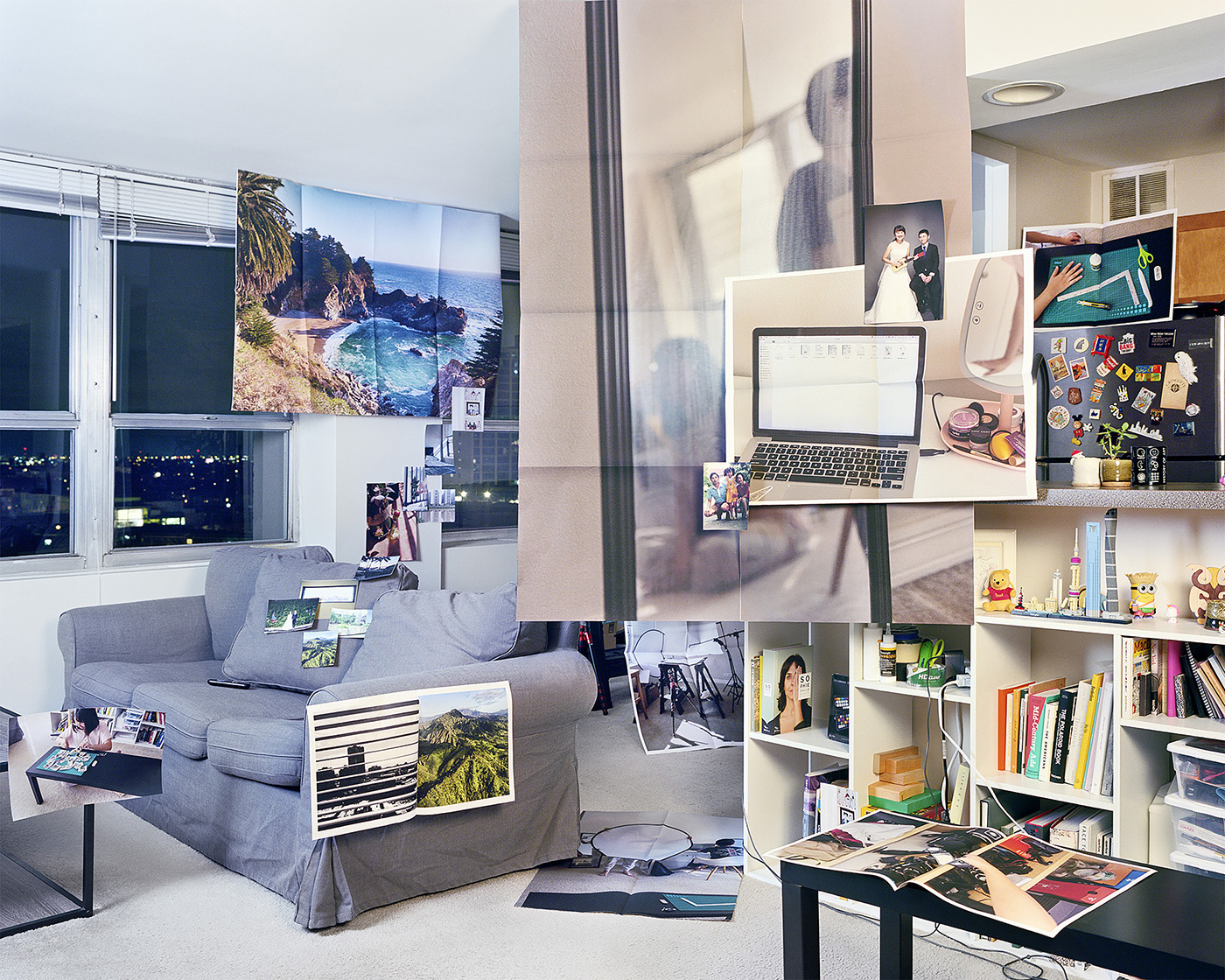
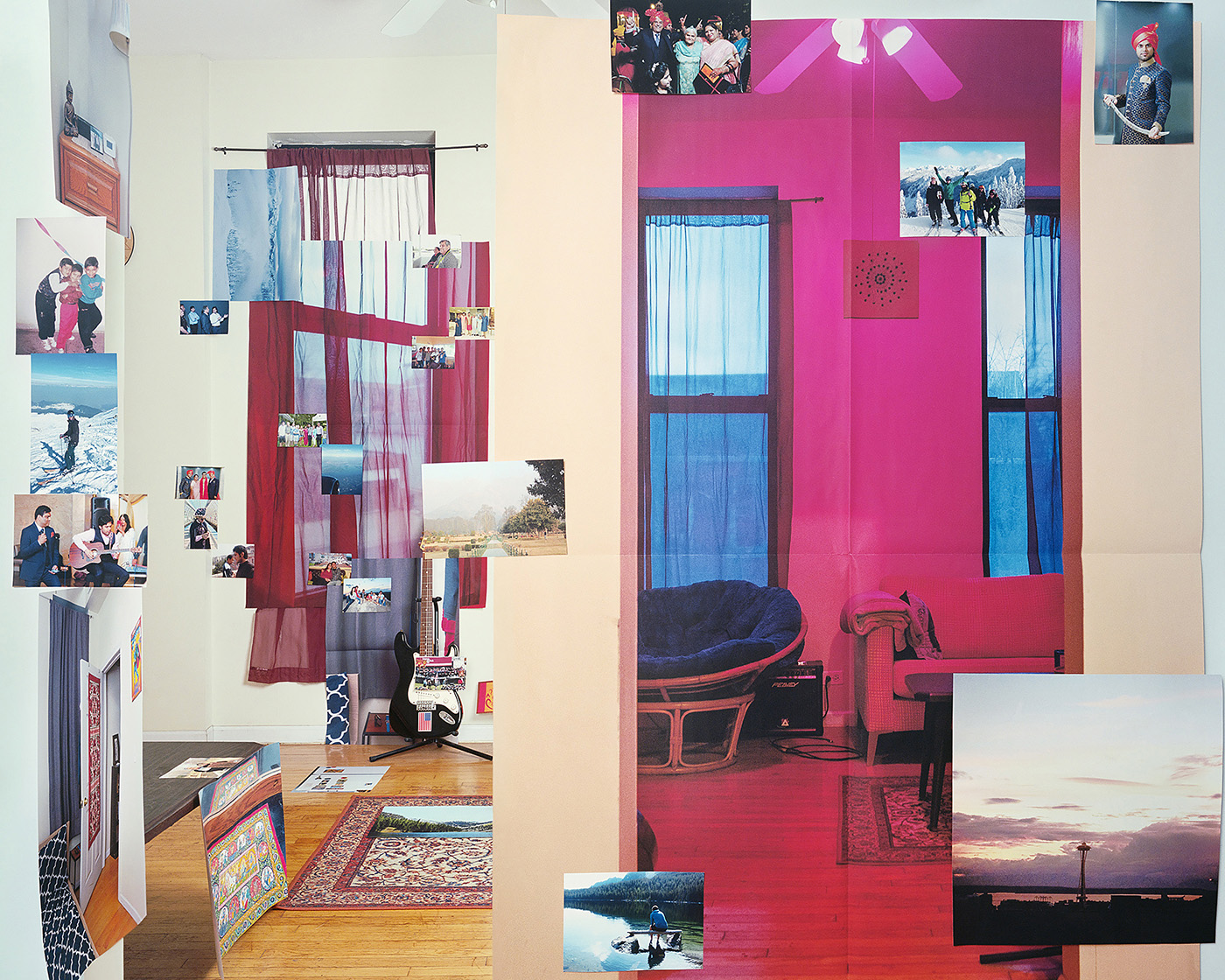
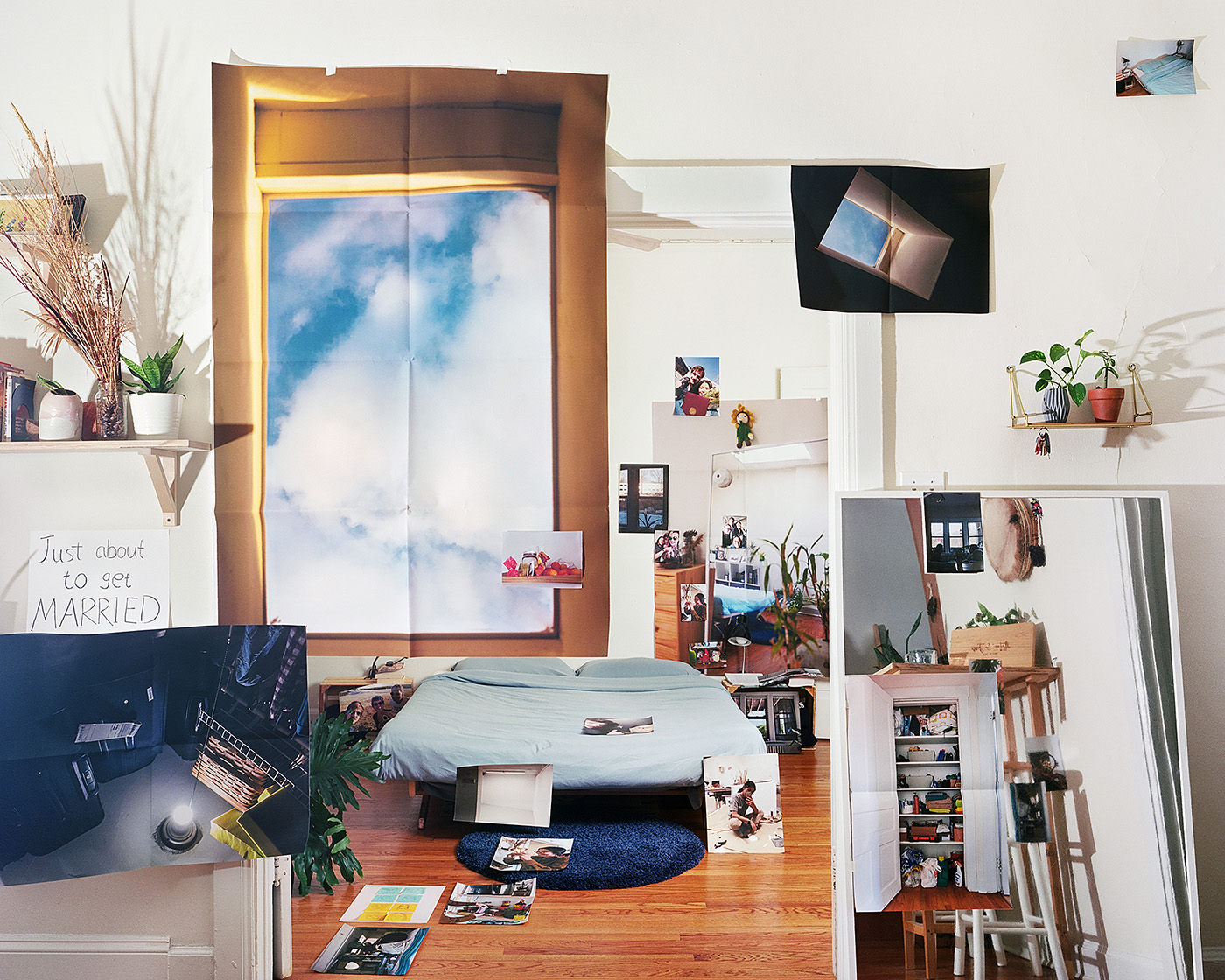
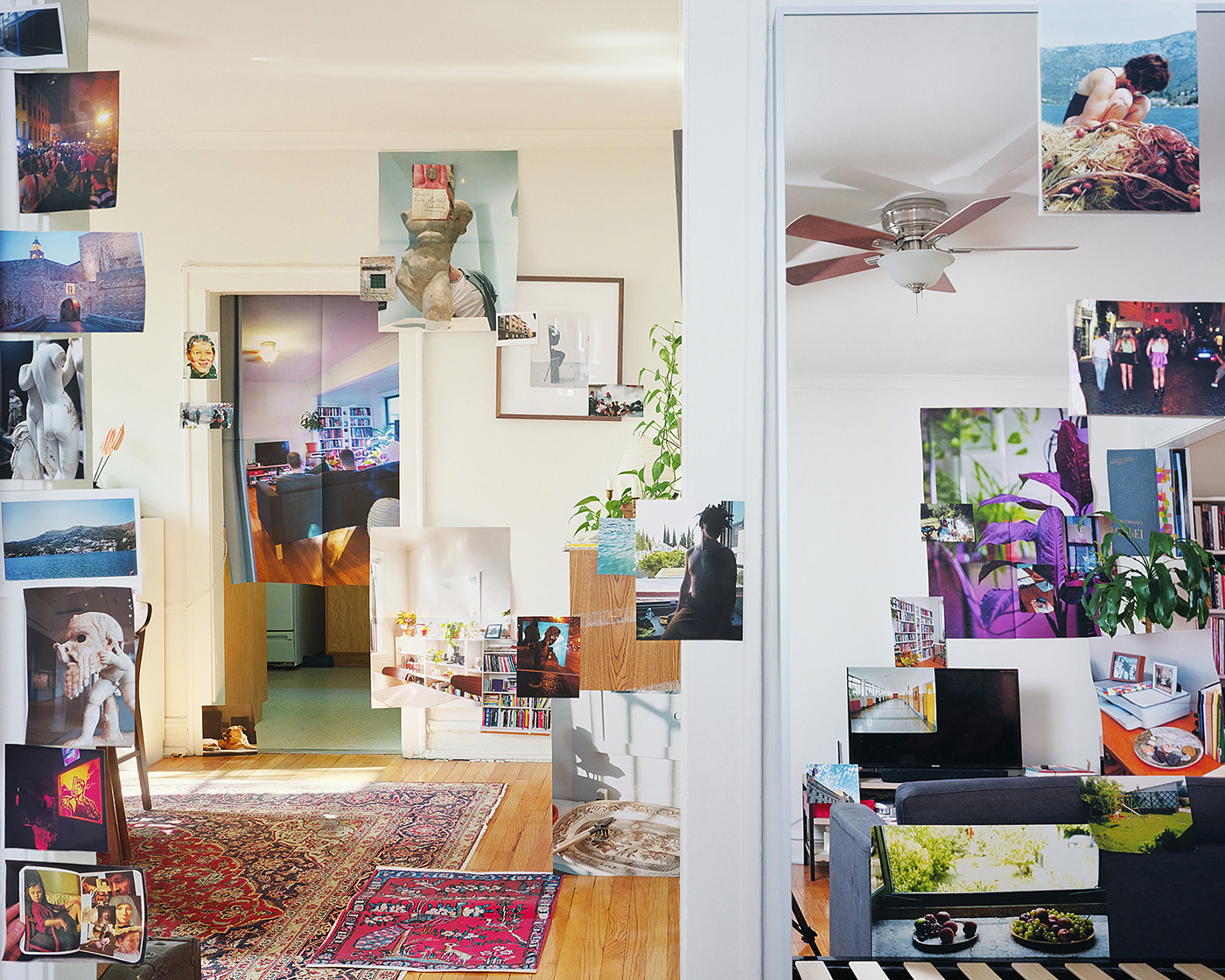
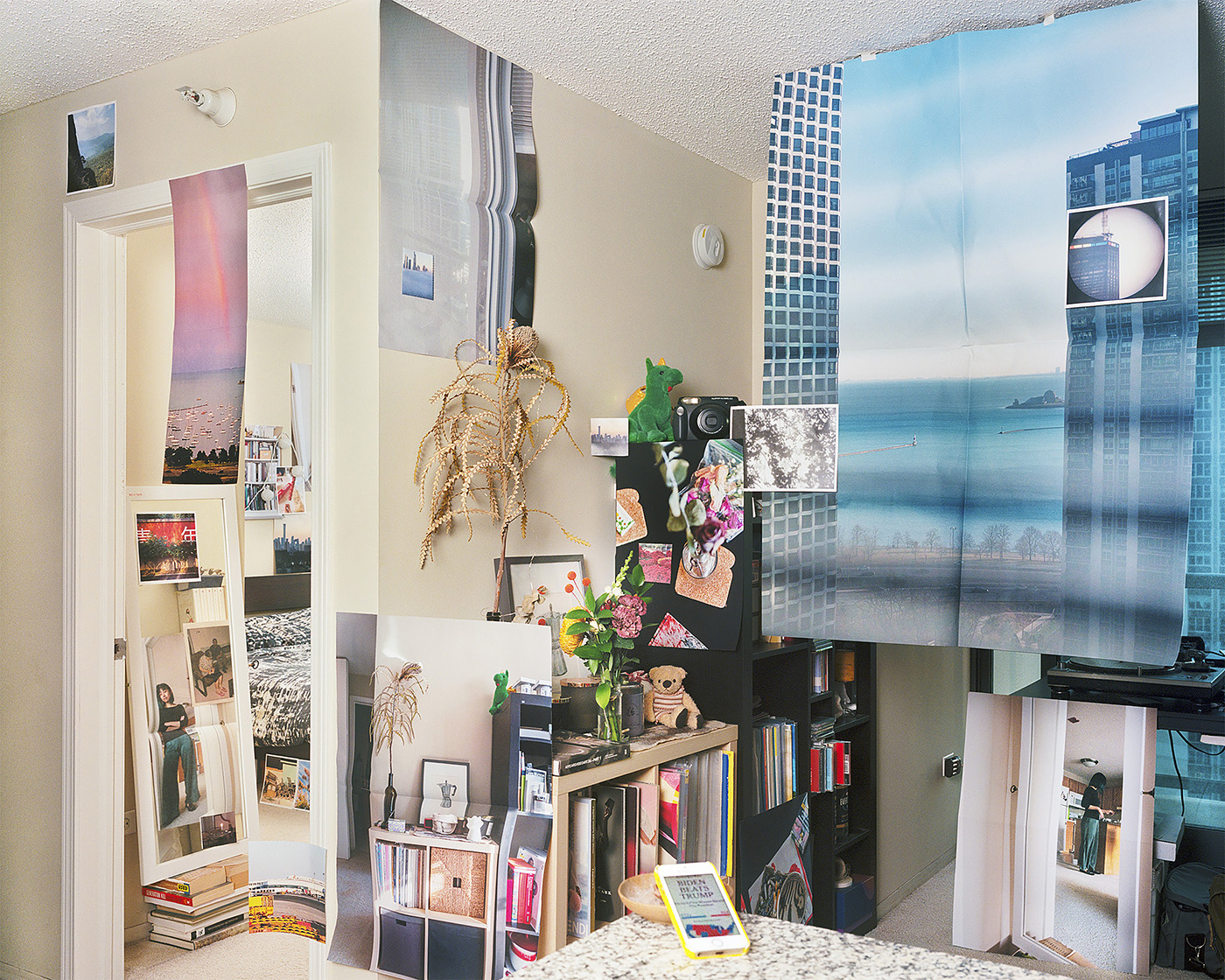
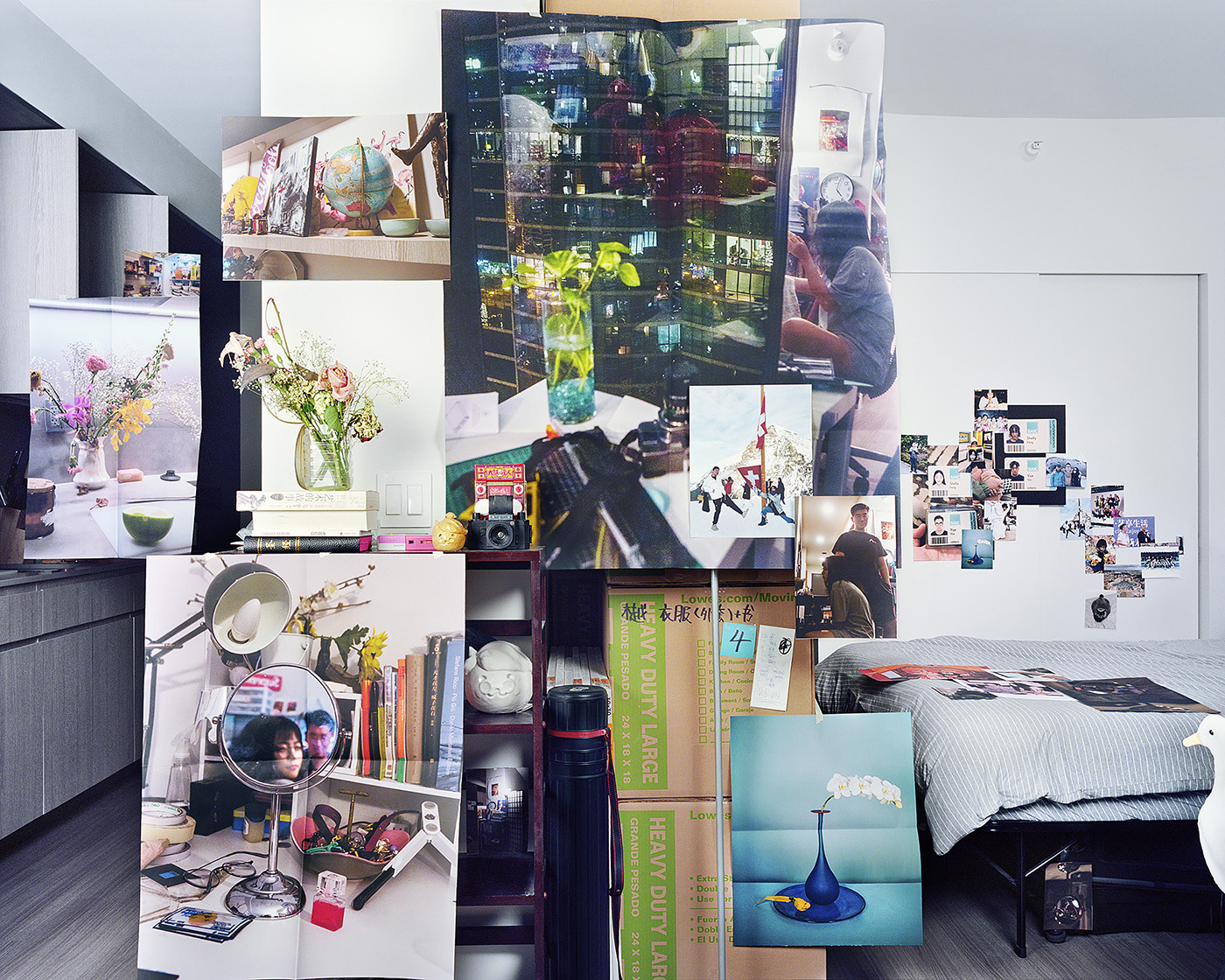
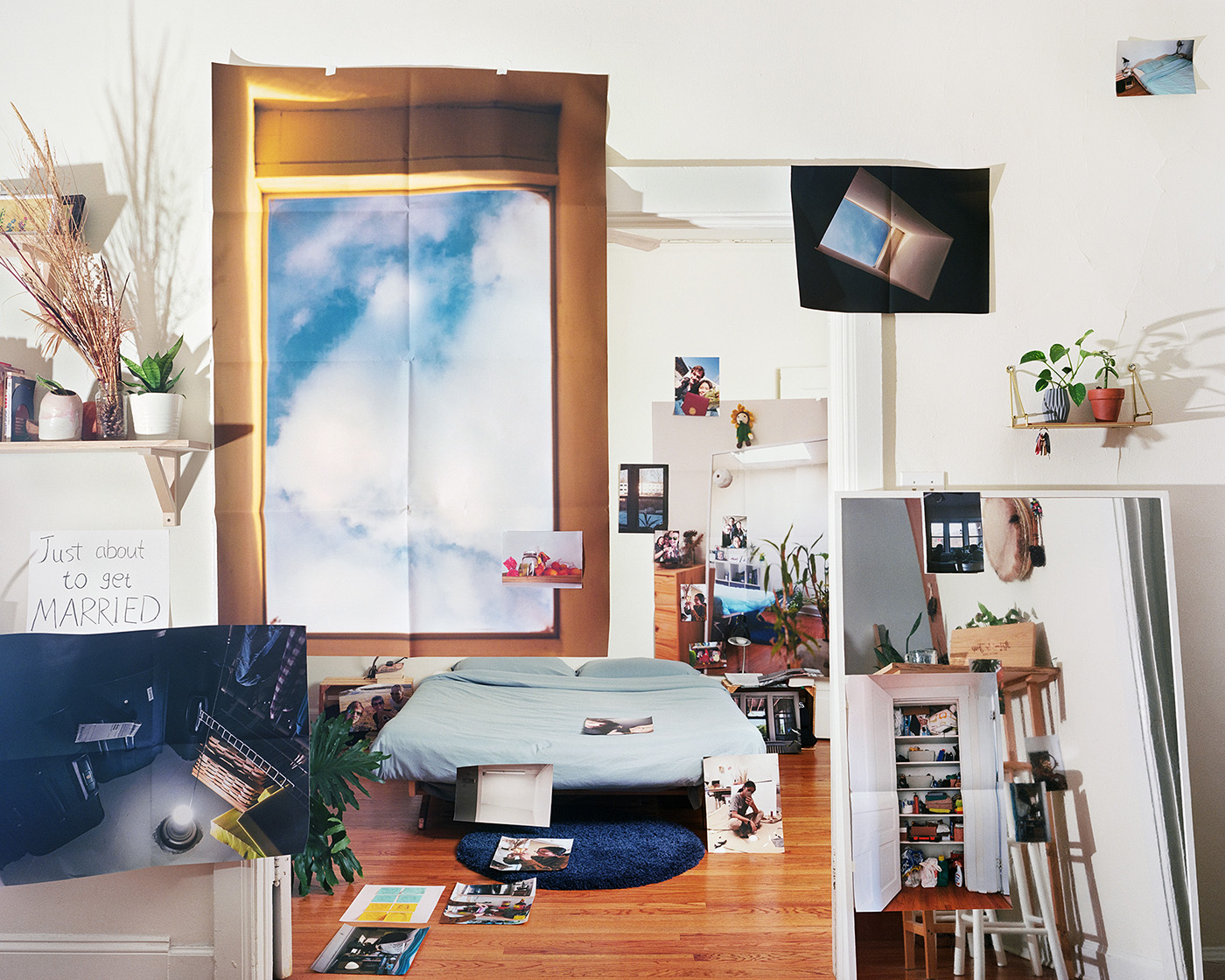
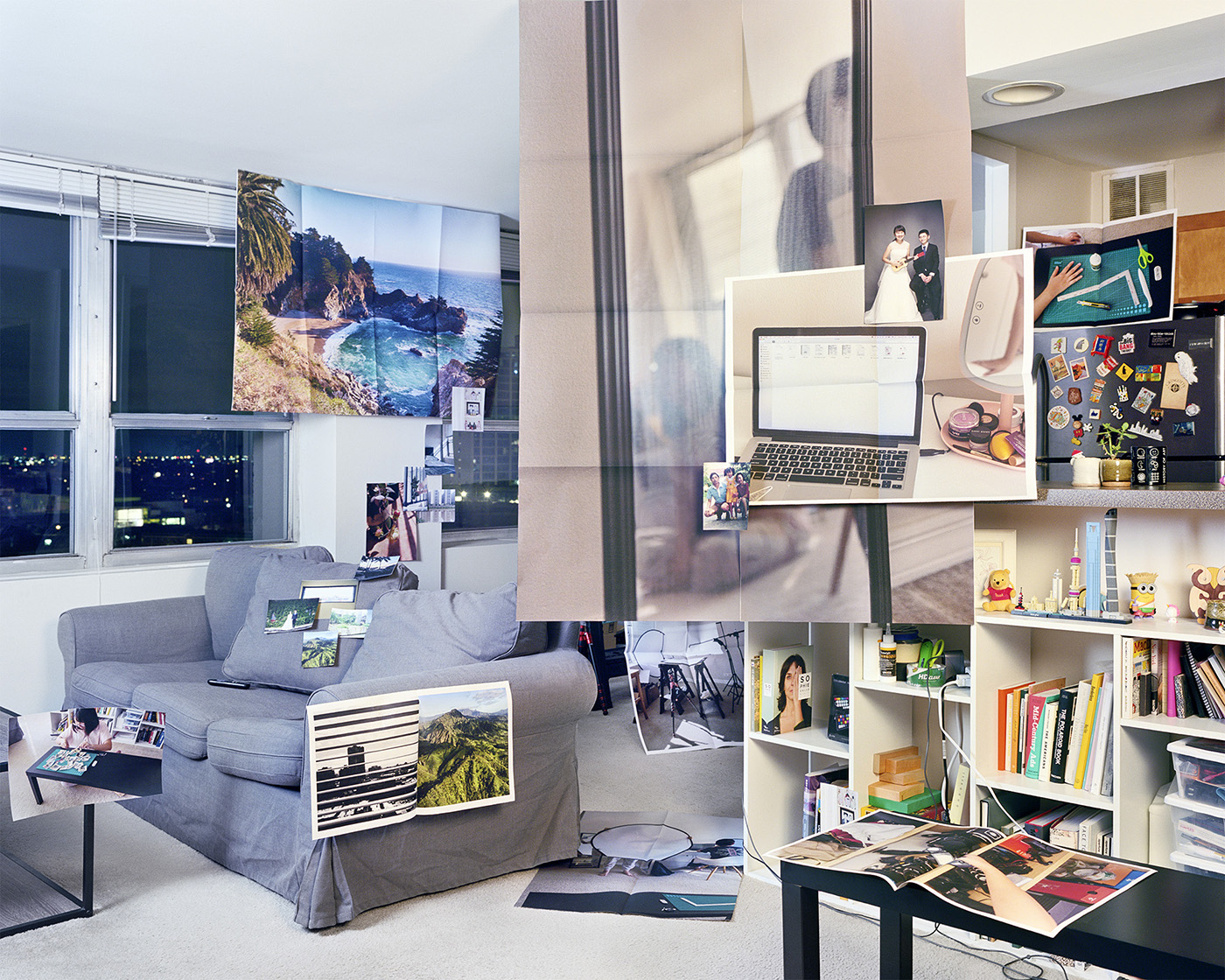
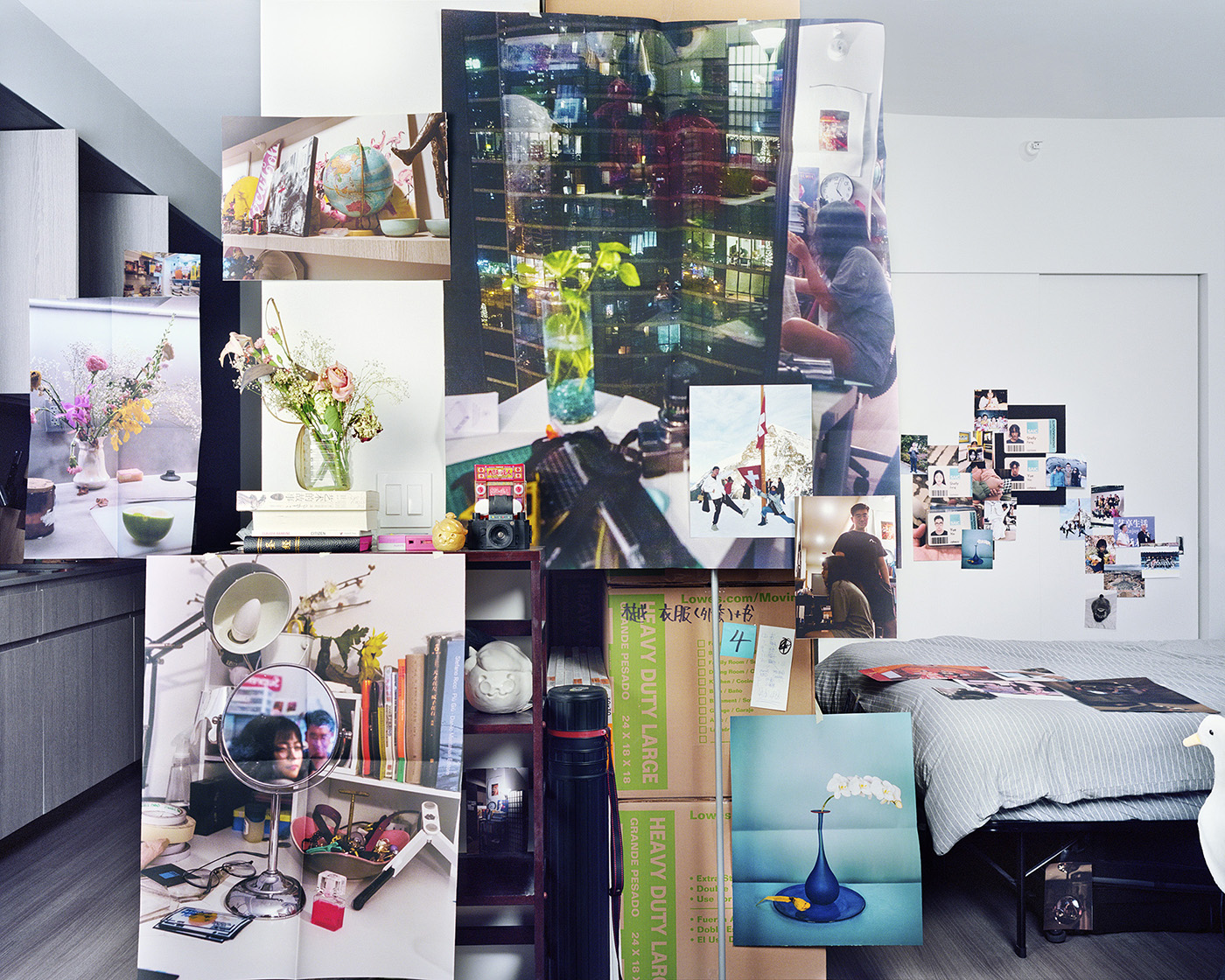
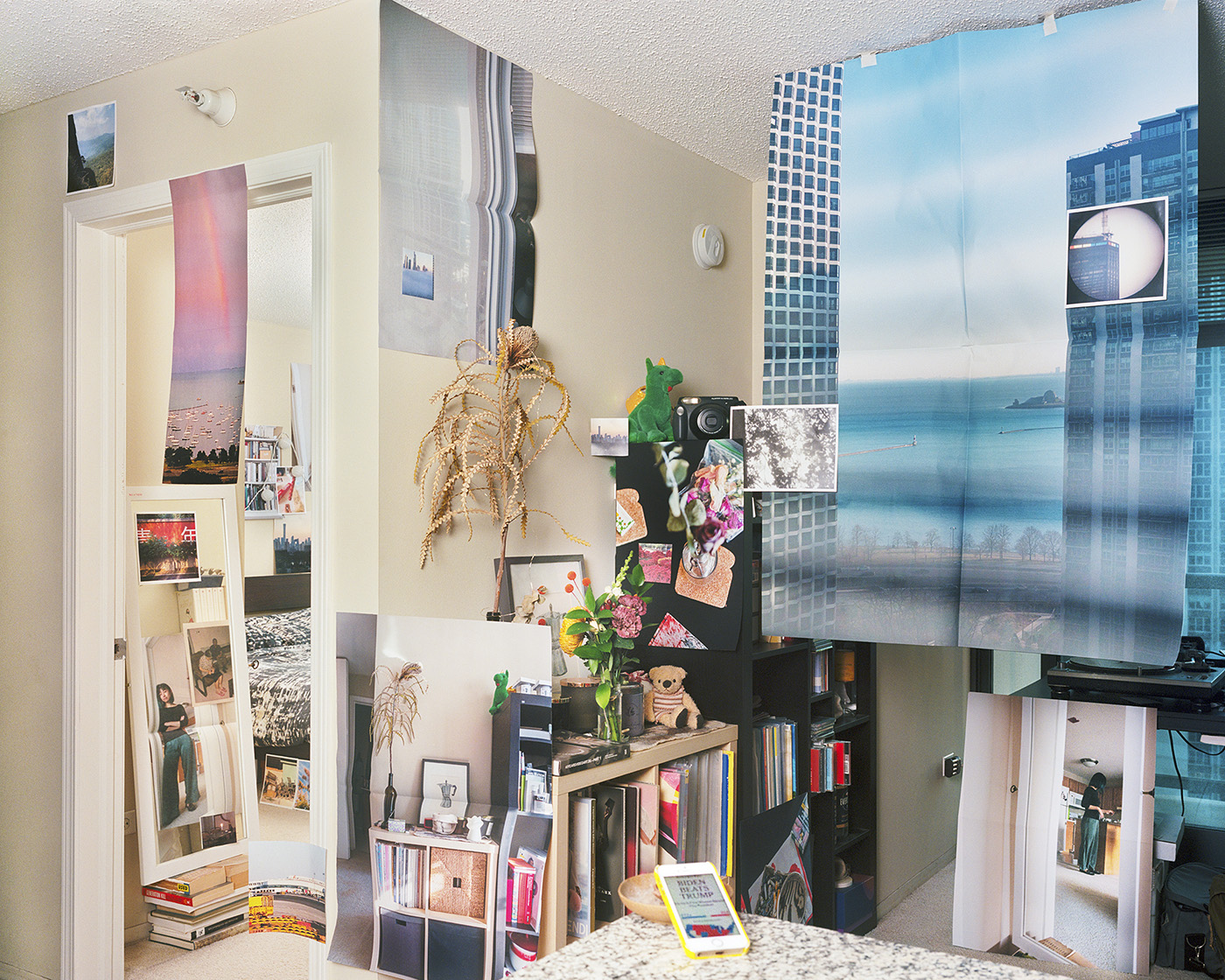
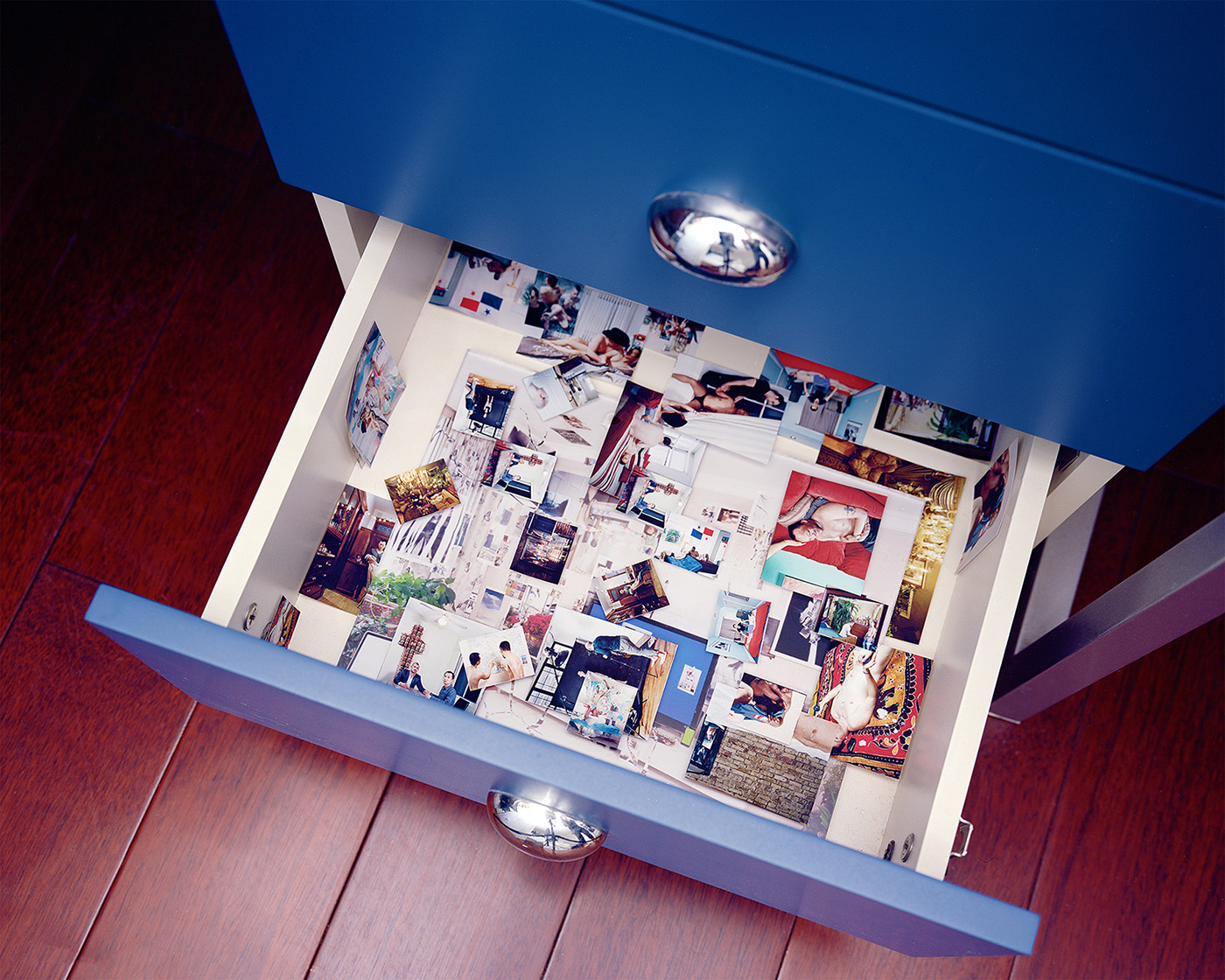
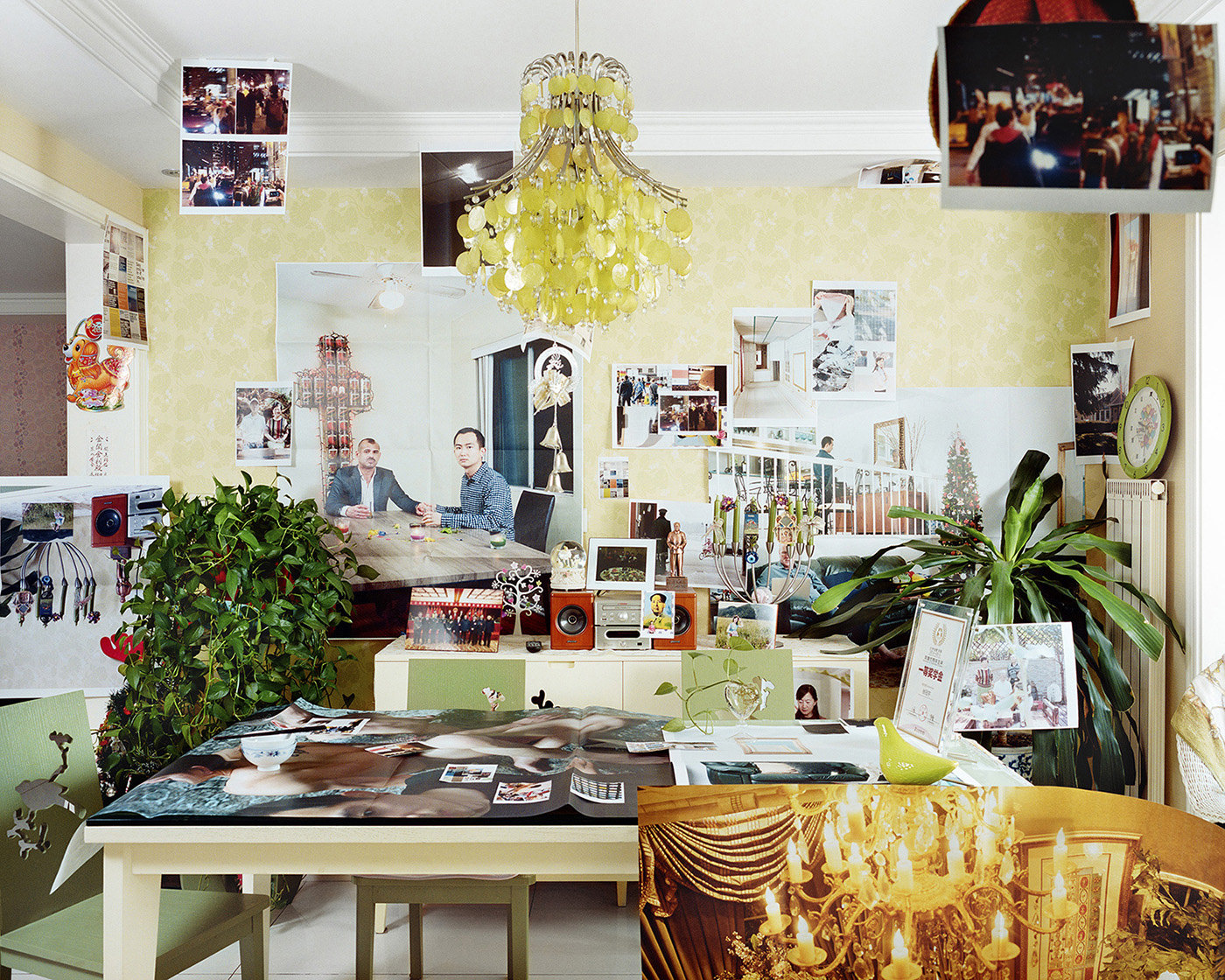
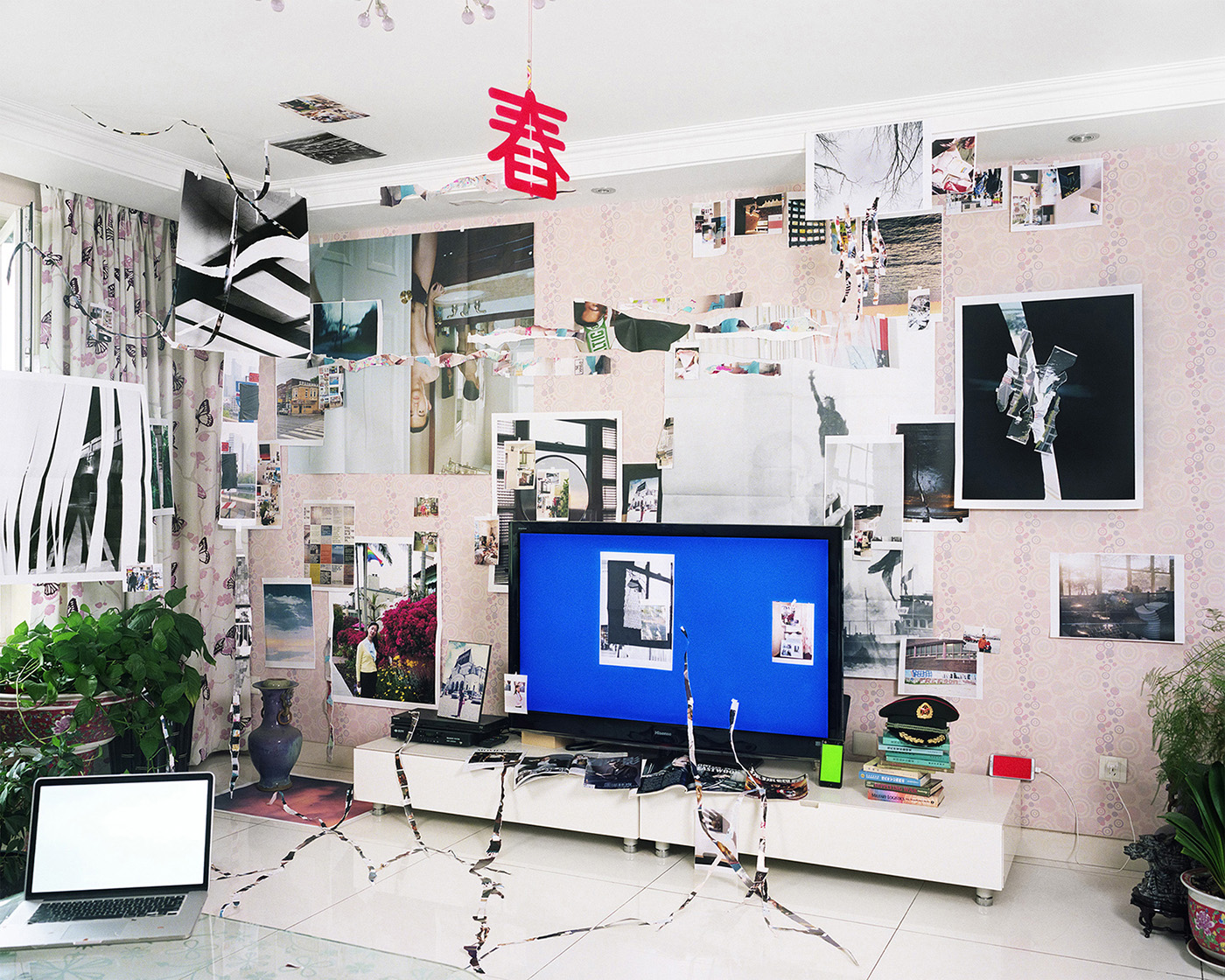
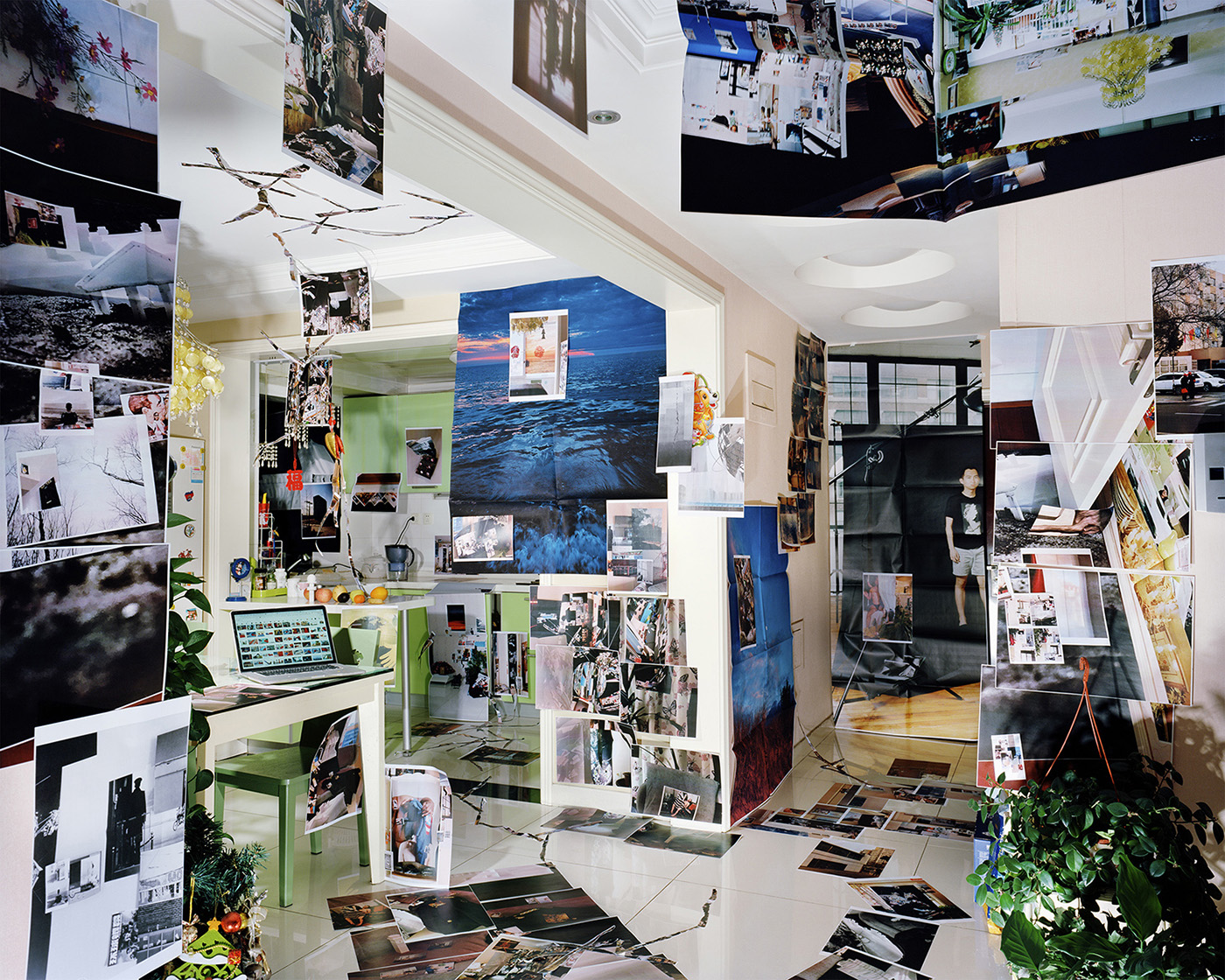
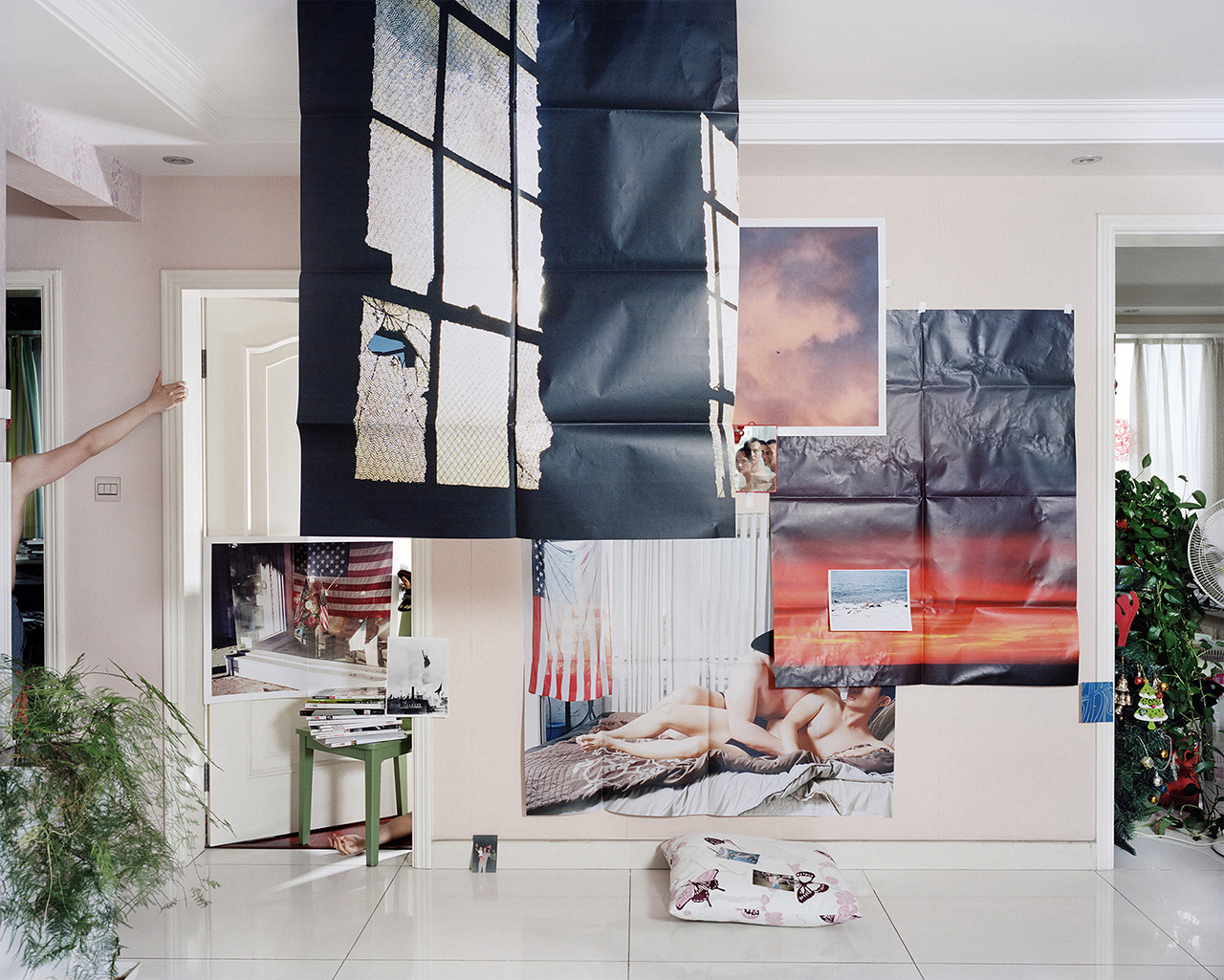
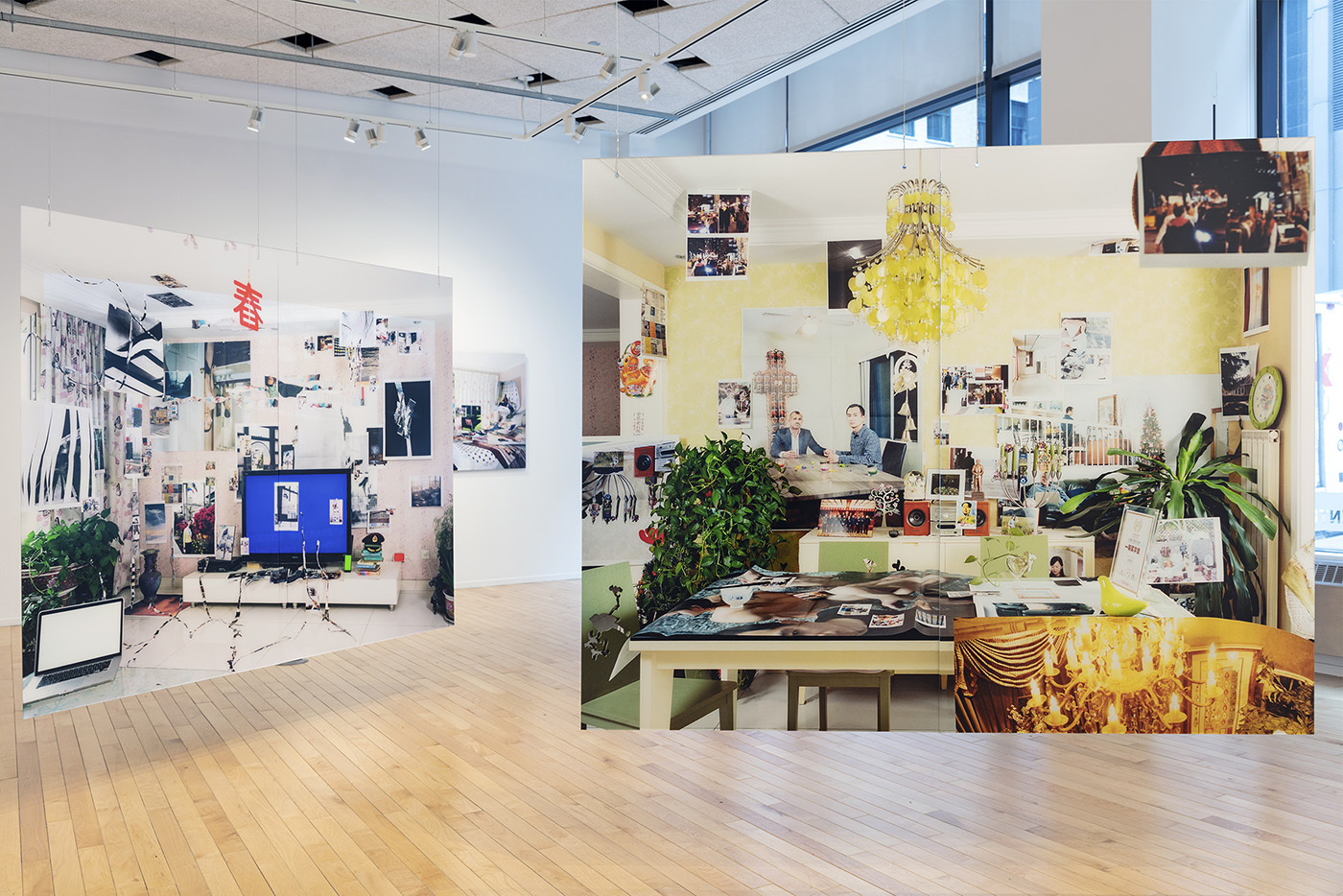

PROJECT DEVELOPMENT: Artist's Statement
Winner: Guanyu Xu
Resident Aliens
For many immigrants, the home could never be private and secure. In Resident Aliens, I find participants who hold different visa statuses in the United States. Upon invitation, I photograph their homes and personal belongings, and then print these images out in addition to my subjects’ personal photo archives. These prints are installed back into their space as temporary installations and additionally documented as photographs. The project blurs the boundaries between the familiar and foreignness, private and public, belonging and alienation.
It is from my own experience and the accumulation of similar stories from my friends that drove me to start Resident Aliens. Living in the US for over seven years, I am still struggling with the legitimacy of my residency here. For instance, even with an artist visa, I still need to go to the U.S. consulate every time before I come back into the States. In the past, I have experienced a secondary inspection at U.S. Customs in Chicago, and an identity check by the U.S. Border Patrol in California. Under Trump’s shifting immigration policies, many people were in a constant state of uncertainty. These constructions of state power perpetually classify immigrants as potential subjects of criminality. The creation and the use of fear psychologically control us. A resident alien, who is required to pay the same tax as a citizen, may not only need to struggle for assimilation in the public space but also cannot see the home as a safe haven. Under the systematic oppression, to a certain degree, staying at home could be a house arrest: we either leave to struggle for assimilation or we need to worry about the shift of immigration policy and foreign relations.
My performative actions with the participants are not only an integral social practice in representing their complex identities and histories, but it’s also a negotiation of power and assumed stereotypes. As a “foreigner,” I transform their temporary states of being into installations and preserve the constructions as photographs. The project presents immigrants’ intimately nuanced experiences within their homes and in the US at large. These convergences of spaces and times invite the viewer to enter into spaces of fluidity rather than fixed perspectives. Resident Aliens is an innovative approach to portrait photography. It opens new complexity for depicting people and groups. The project is situated between photography, installation, and performance, which constructs layered images of identity, personal history, and the built environment. They mobilize the viewer’s gaze, imagination, and care, defying strict definitions.
Through collaboration and conversation, Resident Aliens present the complicated conditions immigrants experience in the U.S. I want to ask: In this interconnected world, how do we redefine citizenship and the legality of a person?

PROJECT DEVELOPMENT: Juror's Statement
Arpad Kovacs
Assistant Curator, J. Paul Getty Museum, Los Angeles
Last year’s seemingly endless string of challenges revealed the fragility of the social fabric. Lives were cut short by a global pandemic. People were forced to take extended refuge in their homes. Protests and violence resurfaced the ever-present racial inequalities in this country. Amidst these existential issues, artists continued to make work that both reflected the vulnerabilities inherent in our lives but also reinforced the strengths of shared bonds. Working across all media, artists are often well-positioned to encourage conversations that help to heal divisions. I saw abundant examples of such photographs during my review of the submissions for the Project Development Grant.
My participation as a juror was also an excellent reminder of the many thoughtful and creative ways artists hold a mirror to society. The works that I found to be the most successful were the ones that engaged, often in unexpected ways, with universal truths like belonging and community. In particular, I returned to the photographs in Guanyu Xu’s series Resident Aliens on multiple occasions. His collage-like compositions depict the private homes of immigrants that the artist has embellished with enlarged photographs from each occupant’s personal archive. Each time I looked at these pictures, I would scrutinize every corner of the interiors depicted and try to understand complex family histories from snippets of images. As the artist notes, this body of work addresses the idea of citizenship, perhaps the ultimate form of belonging. To me, these photographs speak tenderly about how the notion of home is in constant need of reassessment for those who have moved from one country to another. It’s an idea that is never fully resolved, even when one feels completely in synch with their new environment.

